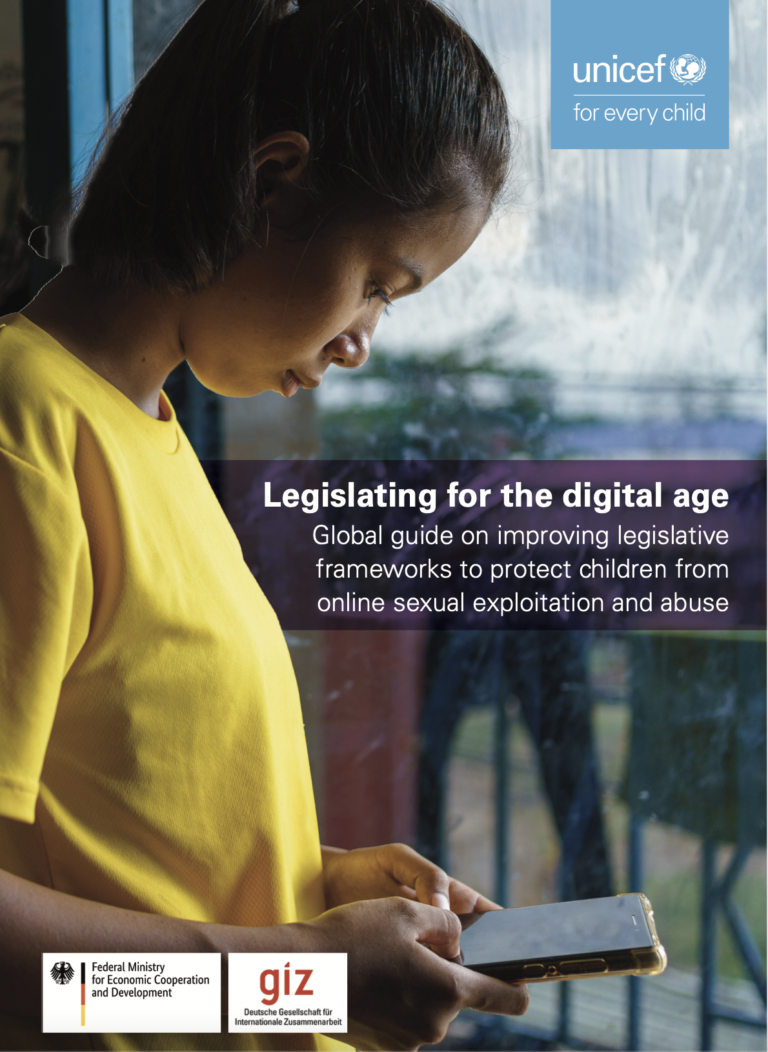The purpose of the Global Guide is to provide guidance on how to strengthen legislative frameworks to protect children from online sexual exploitation and abuse in accordance with international and regional conventions, general comments and guidelines of treaty bodies, model laws and good practices. It is intended for use by governments, country offices of international organizations, civil society and business organizations to assist in ensuring that all aspects of online sexual exploitation and abuse of children are explained and contained in legislation, in line with international and regional standards and good practices.
While the digital environment may provide ‘new opportunities’ for the realization of children’s rights, it also presents risks, and ‘may open up new ways to perpetrate violence against children, by facilitating situations in which children experience violence and/or may be influenced to do harm
to themselves or others.’ Year on year, there are increasing reports of various forms of online child sexual exploitation and abuse. The reported increase in the scale, severity and complexity of online child sexual abuse and exploitation, particularly during the Covid-19 pandemic, is also of particular concern. For example, in 2021, the USA-based National Center for Missing and Exploited Children received 29.3 million reports of suspected child sexual exploitation, an increase of 35 per cent from 2020.
The true extent of child online sexual abuse and exploitation, however, remains unknown, in part due to barriers to disclosure and reporting. Interviews with children across 12 countries in the East Asia and Pacific and Eastern and Southern Africa regions during 2020-2021 indicated that between one to 20 per cent of children suffered online sexual exploitation and abuse in the past year, one in three of whom did not tell anyone about this experience.
Article 34 of the Convention on the Rights of the Child places an obligation on States parties to protect the child from all forms of sexual exploitation and sexual abuse, including all forms of online sexual exploitation and abuse. The Committee on the Rights of the Child has also affirmed that States parties should regularly review, update and enforce robust legislative frameworks ‘to protect children from recognised and emerging risks of all forms of violence in the digital environment’ including sexual exploitation and abuse.

